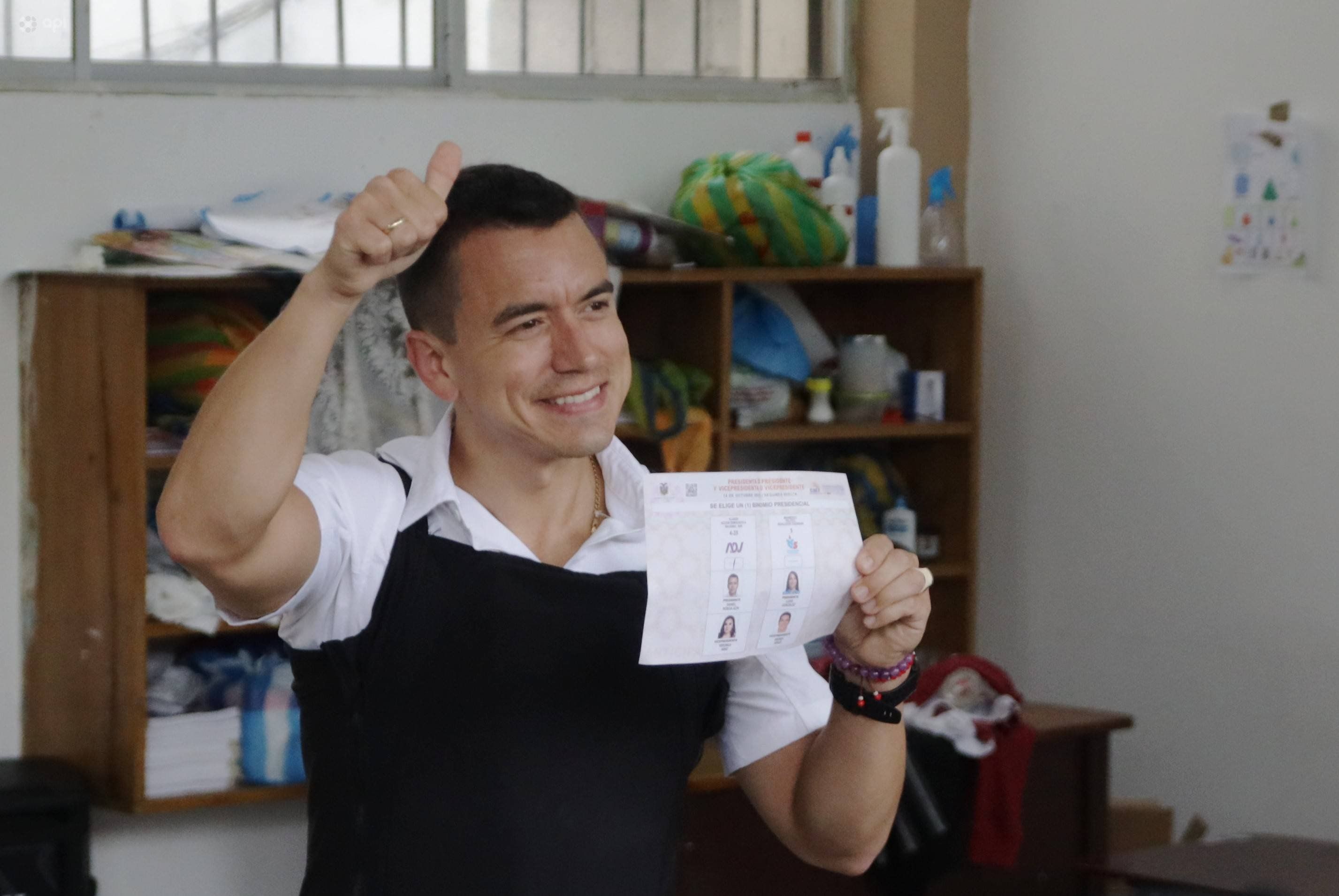Noboa wins, but Correa remains at heart of Ecuador’s political crisis
On Sunday, Ecuadorians elected their youngest-ever president, businessman Daniel Noboa, amid deep political rifts that exacerbate a growing security crisis in the small Andean nation.
Ecuador has become a major export route for drugs destined for Europe, and cartels brought their bloody tactics across the borders of Colombia and Peru. In July and August, three politicians, including outspoken anti-drug presidential candidate Fernando Villavicencio, were assassinated in separate incidents. The number of violent deaths in Ecuador doubled to over 4,600 between 2021 and 2022 and is set to break another record this year.
But layered on top of the crisis is the deep social divide over left-wing former President Rafael Correa. This weekend’s election was triggered when erstwhile President Guillermo Lasso — the first conservative president since Correa was elected in 2007 — resigned and dissolved Congress in the face of impeachment proceedings. Correa, who moved to Belgium after leaving office in 2017, was convicted of corruption charges in 2020.
Eurasia Group’s Director for Latin America, Risa Grais-Targow, says that Noboa’s careful positioning on correismo (the political ideology related to Correa), more than campaign promises about security or the economy, helped him win.
“The strength of his candidacy stemmed from the fact that he's a political newcomer who focused his campaign on appealing to the segment of the population that neither identifies as correista nor anti-correista,” she says.
Still, it may be hard for Noboa to deliver for those middle-of-the-road voters. His team’s political resumés run a little short, and he’ll have to cobble together a coalition in the legislature to get anything done. His party holds just 13 seats — well short of the 70-seat majority.
What’s more, Grais-Targow said Noboa can’t avoid the issue of Correa forever — with fresh elections for a full term scheduled for February 2025, everyone will be back on the campaign trail soon. That said, defeated correista candidate Luisa Gonzalez said her party would work with Noboa in Congress in her concession speech.
“The correistas still have an agenda related to former President Rafael Correa's legal cases,” says Grais-Targow. “They may be willing to support certain aspects of Noboa’s agenda in Congress, where they're going to actually have the largest share of seats, in exchange for giving them more sway over key institutional appointments that could shape the future of Correa's legal problems.”
